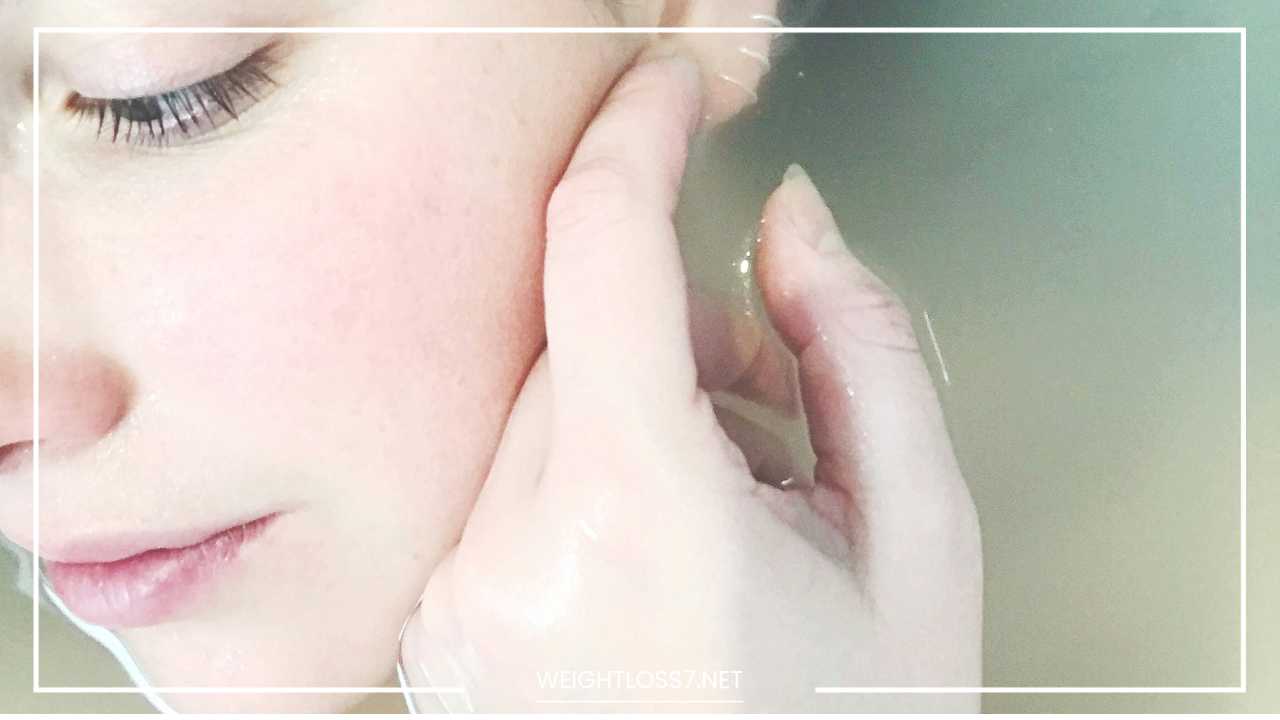Soothe Sensitive Skin: Solutions & Expert Advice

Sensitive Skin
Sensitive Skin: Finding Calm in a World of Irritation
Does the world of skincare seem like a minefield for you? Does the mere thought of trying a new product send shivers down your spine, fearing a reaction? If so, you’re likely part of the large community living with sensitive skin. Contrary to popular belief, sensitive skin isn’t just about feeling a pinch after shaving.
It’s a complex condition that can significantly impact your daily life and self-confidence. But fear not, fellow sensitive souls!
This comprehensive guide is your haven for all things sensitive skin. We’ll delve into the science behind it, uncover potential triggers, and equip you with best practices for navigating this terrain with confidence. Here’s what you can expect:
Understanding Your Sensitive Skin: A Deep Dive
Sensitive skin is more than just feeling easily irritated. It’s characterized by a weakened skin barrier, the outermost layer that protects your skin from external aggressors.
Think of it like a brick wall, keeping moisture in and irritants out. In sensitive skin, the “bricks” are loosely packed, compromising its protective function.
Several factors can contribute to a weakened skin barrier, including:
- Genetics: Some people are simply predisposed to having sensitive skin. It can run in families, so if you have a close relative with sensitive skin, you’re more likely to experience it as well.
- Skin Conditions: Existing skin conditions like eczema, rosacea, and psoriasis can all contribute to increased sensitivity. These conditions often involve inflammation and a compromised skin barrier, making the skin more reactive to external stimuli.
- Environmental Factors: Sun exposure, harsh weather conditions (extreme cold, wind), and pollution can all take a toll on your skin barrier. These elements deplete natural oils, dehydrate the skin, and trigger inflammatory responses.
- Skincare Habits: Using harsh cleansers, excessive exfoliation, and certain ingredients can compromise the barrier. Stripping the skin of its natural oils and disrupting the delicate balance of its microbiome (the good bacteria on your skin) can lead to increased sensitivity.
Identifying Your Triggers: Becoming a Skin Detective
The key to managing sensitive skin is identifying your triggers. These are the elements that cause your skin to react with redness, dryness, itching, or burning. Here are some common culprits to watch out for:
- Fragrances: Synthetic fragrances are a major irritant for many with sensitive skin. These often contain harsh chemicals that can disrupt the skin’s natural balance and trigger inflammatory responses. Look for fragrance-free products or those with natural, calming essential oils in very low concentrations (always patch test!).
- Alcohol: This drying agent, often found in toners and astringents, can strip your skin of its natural oils, leading to irritation and tightness. Avoid alcohol-based products and opt for gentler alternatives.
- Sulfates: These cleansing agents are often found in shampoos and face washes. While effective at removing dirt and oil, they can be too harsh for sensitive skin, leaving it feeling dry and irritated. Look for sulfate-free cleansers that are gentler on the skin barrier.
- Essential Oils: While natural, essential oils can be highly concentrated and cause reactions, especially for those with very sensitive skin. Opt for gentle, fragrance-free products, and if you do want to try an essential oil, dilute it heavily in a carrier oil like jojoba or almond oil before applying it topically (always patch test first!).
- Exfoliants: Harsh physical and chemical exfoliants can damage the skin barrier. Physical exfoliants like scrubs can cause microtears, while chemical exfoliants like AHAs and BHAs can be too strong for sensitive skin. Stick to gentle options like enzymatic exfoliants or skip exfoliation altogether if your skin feels reactive.
- Sun Exposure: UV rays are a major aggressor for all skin types, but especially for sensitive skin. They damage the skin barrier, trigger inflammation, and contribute to premature aging. Daily sunscreen use with an SPF of 30 or higher is non-negotiable.
Building a Gentle Routine: Your Skin’s Sanctuary
It’s time to ditch the harsh cleansers and embrace a gentle, minimalist skincare routine. Here’s a breakdown of the essentials, with additional tips for each step:
- Cleansing:
- Look for a fragrance-free, creamy cleanser. Opt for cleansers labelled for sensitive skin or those with calming ingredients like oatmeal, ceramides, or colloidal oatmeal.
- Avoid harsh scrubs and micellar water, which can be drying.
- Consider using lukewarm water instead of hot water, as hot water can further strip the skin of its natural oils.
- Apply the cleanser with your fingertips, gently massaging it in without scrubbing.
- Rinse thoroughly with lukewarm water and pat your face dry with a soft towel (don’t rub).
- Moisturizing: Hydration is key for sensitive skin. Use a fragrance-free, lightweight moisturizer morning and night. Here’s a breakdown of some key ingredients to look for:
- Hyaluronic Acid: This humectant attracts and retains moisture in the skin, keeping it plump and hydrated.
- Ceramides: These lipids naturally occur in the skin barrier and help strengthen it, preventing moisture loss and irritation.
- Colloidal Oatmeal: This soothing ingredient has anti-inflammatory properties and can calm redness and irritation.
- Centella Asiatica (CICA): This botanical extract promotes healing, soothes inflammation, and strengthens the skin barrier.
- Niacinamide: This multi-tasking ingredient helps reduce redness, minimize pores, and improve overall skin texture.
- Sunscreen: Daily sunscreen use is crucial for protecting against sun damage, which can exacerbate sensitivity. Here are some tips for choosing a sunscreen for sensitive skin:
- Mineral Sunscreens: Look for sunscreens that contain zinc oxide or titanium dioxide, which sit on top of the skin and physically block UV rays. These are generally less irritating for sensitive skin compared to chemical sunscreens.
- Broad-Spectrum Protection: Choose a sunscreen labeled as “broad-spectrum” to protect against both UVA and UVB rays. UVA rays penetrate deep into the skin and contribute to premature aging, while UVB rays cause sunburn.
- SPF 30 or Higher: An SPF of 30 offers good protection, but if you have very sensitive skin, you might want to start with a lower SPF (like SPF 15) and gradually increase as your skin tolerates it. Look for sunscreens labeled as “gentle” or “sensitive.”
- Test It Out: Apply a small amount of sunscreen to your inner forearm and wait 24 hours to see if there’s any reaction before using it on your face.
Product Power: Finding the Right Sensitive-Skin Heroes
The world of skincare can be overwhelming, especially for those with sensitive skin. Here are some additional tips for navigating the product landscape and finding the right fit for you:
- Patch Testing: This is an essential step before using any new product on your face. Apply a small amount of the product to a clean, dry area of your inner forearm and wait 24 hours to see if there’s any redness, itching, or burning. If there’s no reaction, it’s generally safe to use on your face.
- Start Simple: Don’t overwhelm your skin with a multi-step routine. Begin with a basic cleanser, moisturizer, and sunscreen, and then gradually add other products like serums or masks as needed. Pay attention to how your skin reacts to each new product introduction.
- Focus on Ingredients: Look for gentle, calming ingredients like the ones mentioned earlier. Avoid harsh chemicals, fragrances, and drying alcohols.
- Less is More: Avoid layering too many products. This can overload your sensitive skin and lead to irritation. If you’re unsure about a product’s compatibility with your current routine, consult a dermatologist.
- Consult a Dermatologist: If you’re struggling to manage your sensitive skin or have concerns about a particular condition, a dermatologist can be a valuable resource. They can help you develop a personalized skincare routine, diagnose underlying issues, and recommend prescription medications if necessary.
Living with Confidence: Beyond Skincare
While a gentle skincare routine is crucial, managing sensitive skin goes beyond just what you put on your face. Here are some lifestyle tips that can further support your sensitive skin:
- Manage Stress: Stress can exacerbate skin problems, including sensitivity. Practice relaxation techniques like deep breathing, meditation, or yoga to manage stress levels.
- Diet: While there’s no one-size-fits-all approach, some people find that certain foods can trigger flare-ups of sensitive skin. Consider keeping a food diary to identify any potential triggers. Staying hydrated by drinking plenty of water is also essential for healthy skin.
- Gentle Cleansing: Avoid harsh soaps and detergents that can strip your skin’s natural oils. Opt for fragrance-free, gentle cleansers for your body as well.
- Sensitive Fabrics: Wear soft, breathable fabrics like cotton against your skin. Avoid harsh fabrics like wool or synthetic fibers that can irritate sensitive skin.
- Lukewarm Showers: Opt for lukewarm showers instead of hot showers, which can dry out your skin.
- Minimize Sun Exposure: While sunscreen is essential, limiting direct sun exposure, especially during peak hours (10 am – 4 pm), can further protect your sensitive skin. Wear protective clothing like hats and sunglasses when outdoors.
Remember: Everyone’s skin is unique, and what works for one person might not work for another. Be patient with your skin, listen to how it reacts, and don’t be afraid to experiment to find a routine that keeps it calm and comfortable. Here are some additional resources that you may find helpful:
- The National Eczema Association: https://nationaleczema.org/
- The American Academy of Dermatology: https://www.aad.org/
- The Skin Cancer Foundation: https://www.skincancer.org/
- Support Groups: Connecting with others who understand the challenges of sensitive skin can be a valuable source of support. Look for online forums or local support groups dedicated to sensitive skin.
Embrace Your Unique Skin:
Living with sensitive skin can be frustrating, but it doesn’t have to define you. With the right knowledge, a gentle skincare routine, and healthy lifestyle choices, you can manage your sensitivity and achieve healthy, beautiful skin.
Remember, you’re not alone! Millions of people around the world share this experience. Embrace your unique skin, and focus on the positive – sensitive skin can also be delicate, reactive, and responsive to care.
With the right approach, you can nurture your skin’s natural beauty and radiate confidence from within.

















